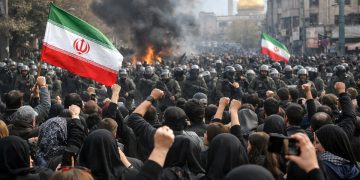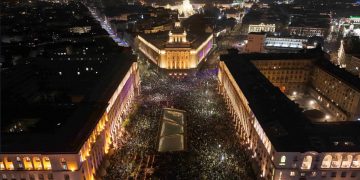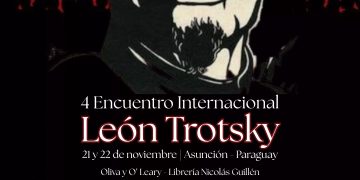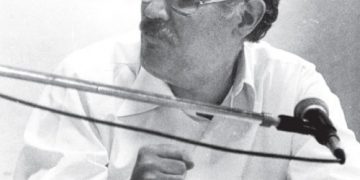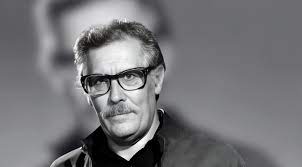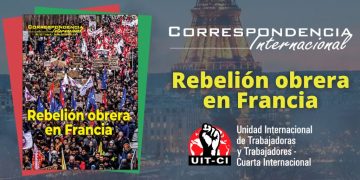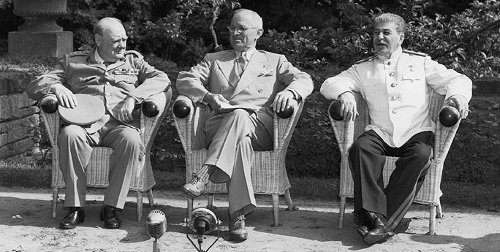 60 years ago Stalin died
60 years ago Stalin died
The man who betrayed Leninism and the revolution
By Mercedes Petit, Izquierda Socialista
On March 5, 1953, victim of a brain haemorrhage, died one of the most powerful men of the twentieth century. The USSR and its «sphere of influence» no longer exist. The debate on the role of Joseph Stalin remains fully valid for XXI century revolutionaries.
In 1953, the USSR (Union of Soviet Socialist Republics), the largest country in the world, was the second industrial power and prepared to dispute the conquest of the cosmos to the United States. Until then, according to the «official history» of the Communist Party of the Soviet Union (CPSU) and its agencies, which dominated Eastern Europe, these achievements were due to the work of one man: the «little father» Stalin. Just three years later, the new general secretary of the CPSU, Nikita Khrushchev, issued a «secret report» against Stalin and launched a «de-Stalinization». In both cases, the bureaucracy was lying to the Soviet people and workers of the world to preserve their privileges and coexistence with imperialism.
Stalin’s rise to power
In the mid-1920s very profound changes occurred in the young USSR. In 1917 they achieved the victory of the first workers and peasants’ government in history, supported by the mobilization of the workers and the people of Russia and the nationalities oppressed by tsarism. It was supported by the soviets, workers democracy and revolutionary and internationalist leadership of the Bolshevik Party. The immense sacrifice that allowed the Soviet people to win a bloody civil war had left the country devastated. In Europe, particularly in Germany, the betrayal of social democracy prevented new triumphs of the socialist revolution.
In this context, while his failing health was worsening, Lenin began a tough battle against the bureaucratization of the state and the party. His key support in the Politburo was Leon Trotsky. The head of the nascent bureaucracy was Joseph Stalin.
Favored by the death of Lenin, Stalin gained control of the bureaucracy. In 1924 he began a course of political counterrevolution, which was synthesized in the pernicious formula «socialism in one country». Relying on the fatigue of the soviet masses, the bureaucracy managed to defeat Trotsky and the Left Opposition.
The political regression was settled in the establishment of a harsh dictatorship. In the 1930s in the USSR ruled a repressive regime that imposed a genocide, with millions of persecuted, deported to concentration camps and killed. The «Moscow trials» led to the shooting of what remained of the old Bolshevik leadership. Trotsky was assassinated in exile in 1940 by an agent of Stalin. Equally ominous was the policy of conciliation with the bourgeoisie, called «popular front» and the substitution of the Leninist party by its caricature, the Stalinist «bureaucratic centralism».
The USSR in the postwar
Thanks to the colossal efforts of the Red Army and the Soviet people, which cost them 20 million dead, the USSR played a leading role in the Second World War to crush the Nazis. Stalin was able to strengthen his figure awarding himself the merits of that achievement. And he personally spearheaded the agreements he signed with Britain and the United States to establish a division of the world within the framework of imperialist domination. Postwar «spheres of influence» were established. The Soviet bureaucracy extended its power by establishing regimes similar to that of the USSR in Eastern Europe, the «people’s democracies.» From 1949 he was further strengthened by the victory of the socialist revolution in China, under the leadership of the Communist Party and Mao Tse Tung.
In the early 1950s, in a third of humanity the bourgeoisie had been expropriated, with totalitarian regimes. Stalin was the supreme dictator of the so-called «real socialism». But the Soviet masses had begun to recover from the war effort and there was beginning a new rise in struggles, prompting rearrangements and fears in the top echelon of the bureaucracy.
Stalin’s death suited the bureaucracy
Even today commentators argue whether Stalin really had a stroke or was poisoned. Everything would be possible in the corridors of Stalinist power and, ultimately, has little or no importance. The fact is that 1953 was a year rocked by new acts of mass rebellion. Within the USSR there were the great strikes of the concentration camps of Vorkuta and Kazakhstan. And in East Berlin, for the first time, there was a major labor strike which was crushed by the occupying Red Army.
Stalin’s two main lieutenants were Gregory Malenkov and Laurent Beria, who sought to remain at the top of the dome. They could not. Beria, head of the sinister secret services, was shot in December. The new general secretary, Nikita Khrushchev, was consolidating his maneuverings and power. Malenkov was ousted in 1955.
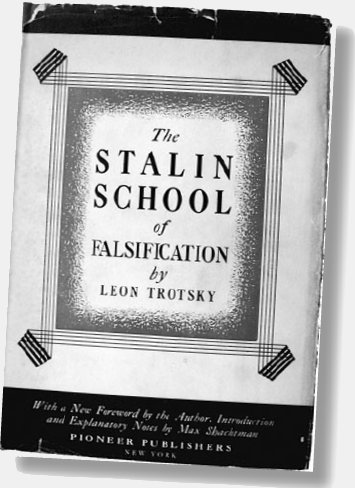 To provide an exhaust valve for the growing claims against the dictatorship, the bureaucracy found their scapegoat: the late Stalin. In February 1956, with a surprising and sudden report of Khrushchev, he was attributed with «mistakes» and an unjustifiable «cult of personality». There wasn’t any kind of rethinking or criticism to the policies of agreement with imperialism and the bourgeoisies, leading to the defeat or stalemate to revolutions. The only «political» issue was to give Stalin great merit for his persecution of «Trotskyism».
To provide an exhaust valve for the growing claims against the dictatorship, the bureaucracy found their scapegoat: the late Stalin. In February 1956, with a surprising and sudden report of Khrushchev, he was attributed with «mistakes» and an unjustifiable «cult of personality». There wasn’t any kind of rethinking or criticism to the policies of agreement with imperialism and the bourgeoisies, leading to the defeat or stalemate to revolutions. The only «political» issue was to give Stalin great merit for his persecution of «Trotskyism».
This «change so that nothing changes» was confirmed in October 1956, when the Red Army crushed in blood and fire Hungarian workers who claimed socialism without an occupying army or repression. Anyway, to keep the «de-Stalinization», in 1961 Stalin’s coffin was removed from the place of maximum honor that was occupying in the central mausoleum next to Lenin and relocated to the Kremlin walls.
60 Years later
Today virtually no one denies the despotic nature of Stalin’s regime and the genocidal traits that Trotsky denounced in the 1930s have continued coming to light. Thus it is fed the version of the imperialists and social democracy that the USSR was just a sinister totalitarian dictatorship «heir of Leninism.» From an opposite direction, some voices of the «left» continue to justify Stalin and his crimes, with the preposterous argument that it was the only way to advance «socialism». At the same time, as the expropriation of the bourgeoisie has been reversed and reinstated the imperialist capitalist exploitation around the world, many voices draw the conclusion that this false «socialism» failed because there was a mistaken «statism.»
To develop these debates, it is indispensable to remember the struggle of Lenin, Trotsky and the Left Opposition to prevent the victory and consolidation of the bureaucratic apparatus led by Stalin. Trotsky argued that failure of the bureaucracy would be inevitable if they remained in power, since they would transform their capitulation to imperialism in the direct restoration of capitalism. Only with a new revolution, crushing the bureaucracy and retaking the initial path of consistent struggle against the bourgeoisie and imperialism, of class independence and workers democracy, the USSR could have been saved. Still pending is the struggle for the victory of the socialist revolution and the reconstruction of working and internationalist leadership to spearhead it.
The «syphilis» of the global labor movement
Thus, in a nutshell, Nahuel Moreno used to refer to the Stalinist communist parties. Since 1953 he stated that the death of Stalin did not alter the most serious problem of mankind, to defeat the bureaucracy and overcome the crisis of leadership installed in the 1920s. This it is the raison d’être of the struggle of Trotsky and revolutionary Trotskyism.
Moreno made systematic opposition between Leninism and Stalinism. He said in 1957, commenting on bureaucratic «unanimity» «This sinister [Stalinist] totalitarian regime has nothing to do with the true Leninism, with communism. With Lenin exactly the opposite happened: there was not a single major problem – from whether to do the revolution or go to war against Poland – which was resolved unanimously. There was never unanimity. Lenin was repeatedly defeated, in spite of the civil war and the defense against imperialist attack of twenty one nations had imposed enormous restrictions on democratic freedoms of the workers. The goal of the Leninists was precisely to reach a democracy as mankind had never known.»
The regime inaugurated by Stalin, and that survived him, until finally the Soviet masses finished with it, was one of the most horrifying ever known to humanity.










